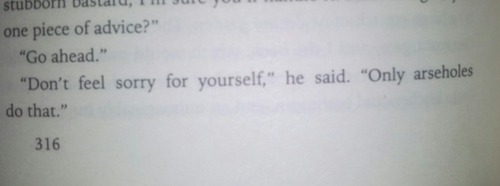
Persepolis is an autobiographical depiction of Marjane Satrapi’s life in Iran in the late 1900s. At the time, Iran was fraught with internal conflicts and external influence – a rebellion against the reigning Shah in 1979 followed by the war with Iraq, all of which resulted in Iran becoming a theocratic nation today, governed strictly under the rules of Islam.
Into a country where all kinds of media or potential influences against Islam go through strict scrutiny, Marjane Satrapi’s Persepolis is a one-sided glass window. It lets the outside world peek into the life of Iranians at the time, particularly the author’s own life. The book is divided into two parts. The Story of a Childhood is about a young Marjane Satrapi who grows up in Iran when it was rebelling against its monarchy. The Story of a Return deals with a mix of teenage confusion and the sudden need for Western assimilation that she is suddenly faced with.
It is no doubt that what first draws any reader to Persepolis is the lure of a glimpse into life in Iran, a working model of a theocratic nation. What makes them stay is the endearing way that Satrapi honestly tells her story – all her mistakes and decisions and conflicts – her growth from being an all-knowing kid who boasted about her uncle’s torturous treatment in prison to a girl who tries to find her identity in a foreign nation while being emotionally stuck in her own country.
In a way, Persepolis takes Haruki Murakami’s quote and flips it over:
In the midst of [death], everything revolved around [life].
The most wonderful thing about the book is how light-hearted it remains despite being engulfed in war. Maybe it was a recollection of Satrapi being a child, thus being protected by her parents. Or it might have been a reflection of her personality – her rebellious side and her natural nonchalance – as described by one of her friends; the kind of personality people might silently evolve into to hold their own against an oppressive regime.
Despite high expectations, Satrapi has a way of making you fall in pace with herself. The smooth transitions between storytelling and narration makes it feel like you’re having a tete-a-tete with her. It also helps that she provides an unbiased and in-depth analysis of her own life. So when the gravity of her worries shift from the latest bombing to friends she feels alienated from, you understand the transition completely while still wondering at the extremities. You can see all the factors going into creating and re-shaping her personality – her nation’s political situation, her cross-culture exposure, her education, reading and the unconditional support of her parents. All things aside, Persepolis is also a shout-out to feminism, the urge of not conforming to society and continuing the journey to discover your identity. It is a reveling story illustrated such that the images will keep coming back to you for a long time.
HEADS-UP
If you’re not used to reading comics, you can still pick this up. But give yourself some room to adjust to the form of representation and don’t hurry yourself. While people say it easy to read comics, I feel the best illustrated ones are usually a tad more tedious to read than regular novels, because there is so much more information flowing into the brain. In the end, it will definitely be worth it.
QUOTES/PANELS

















